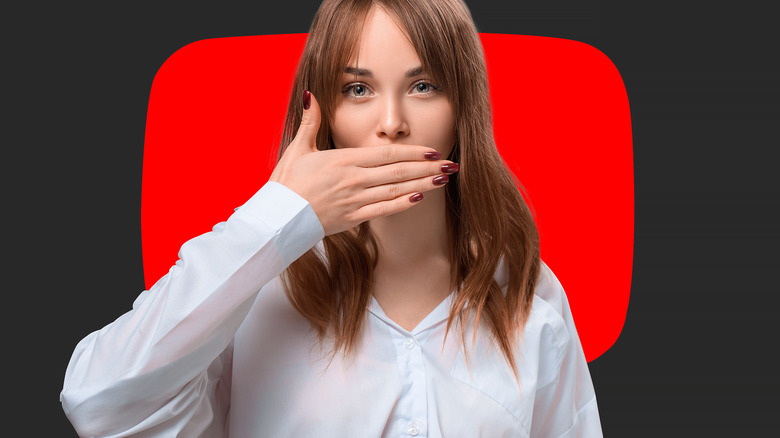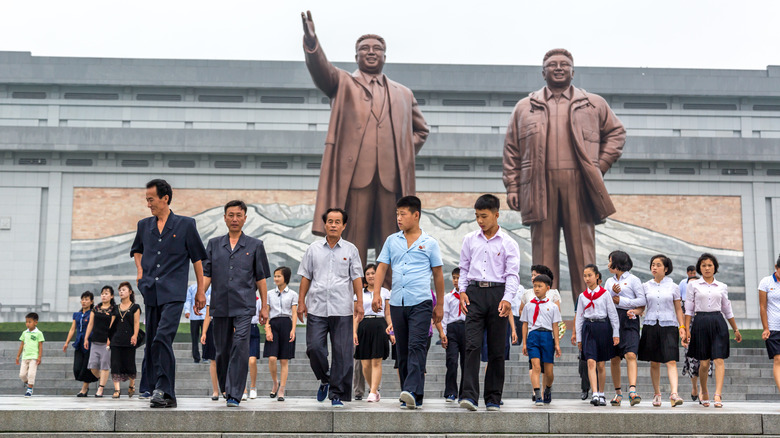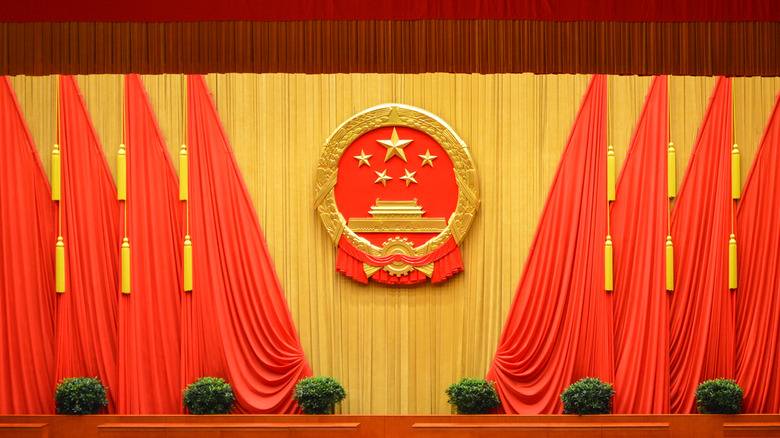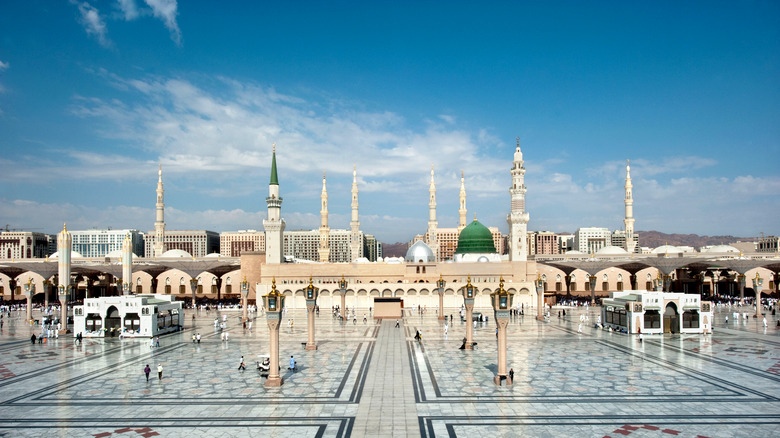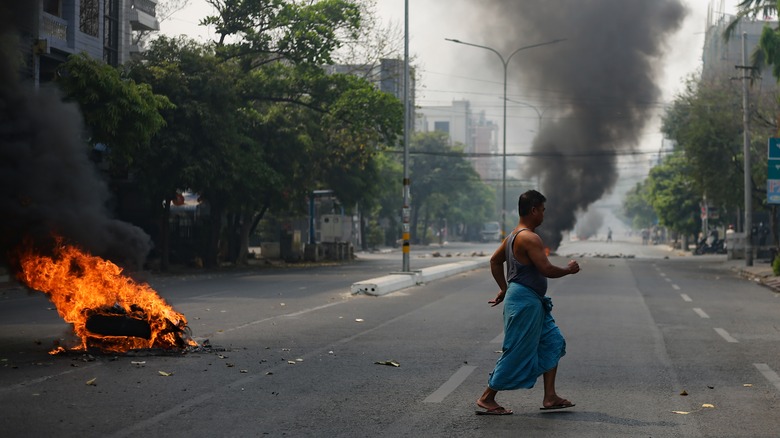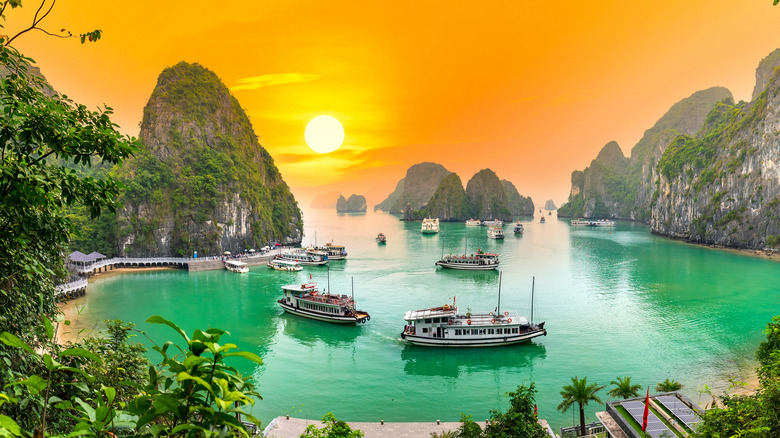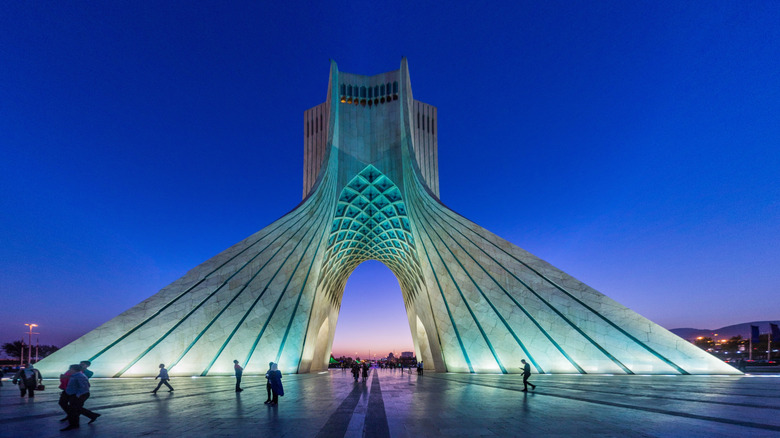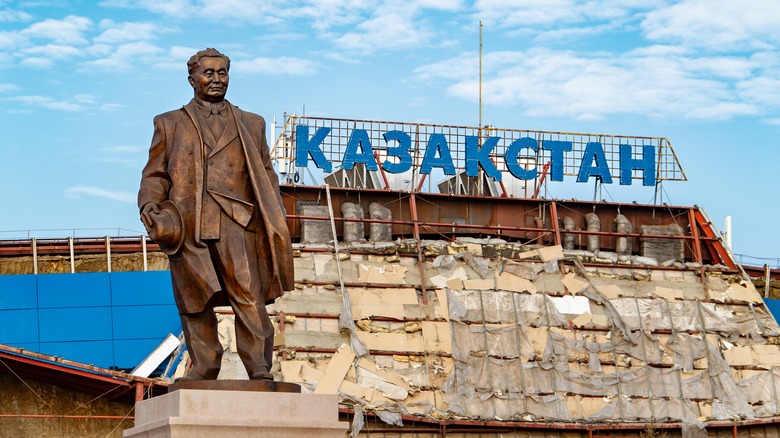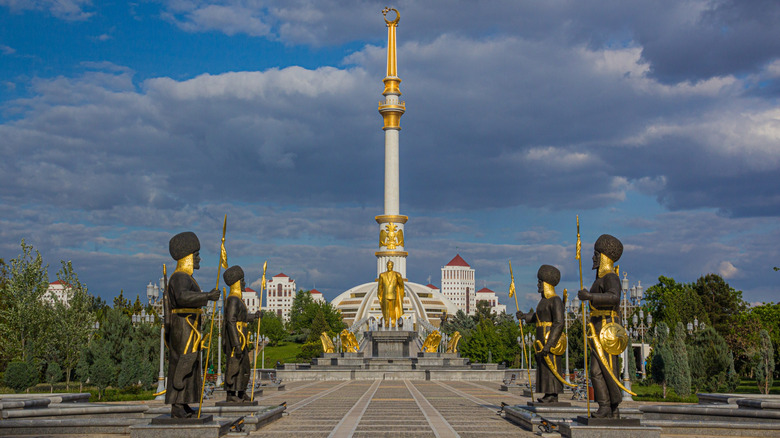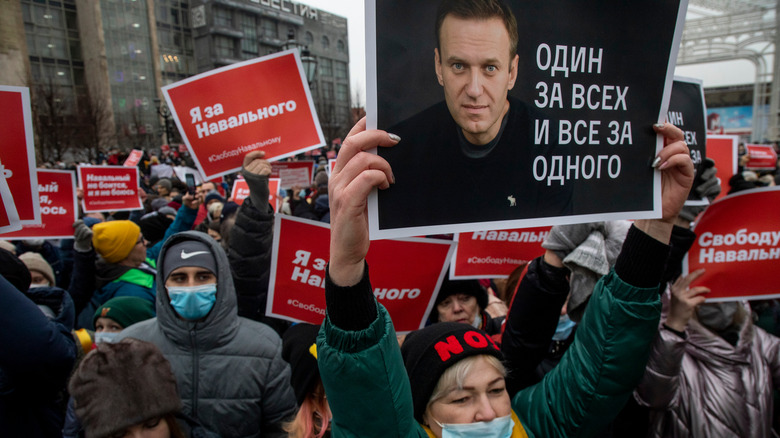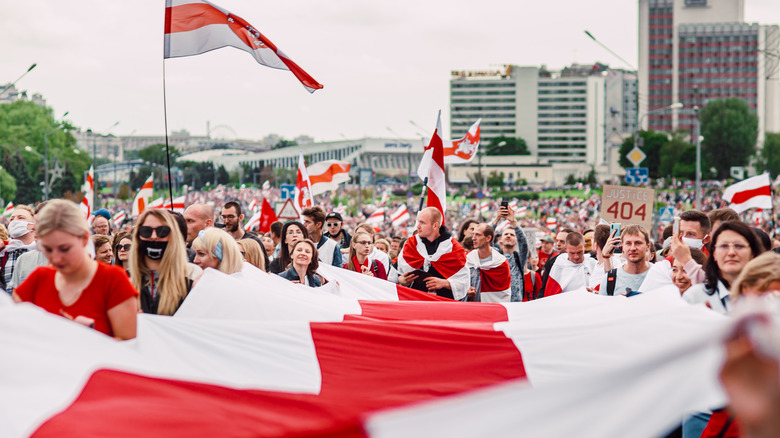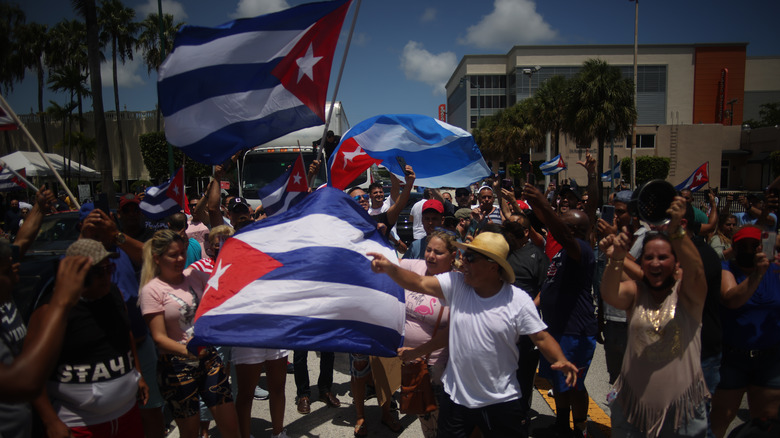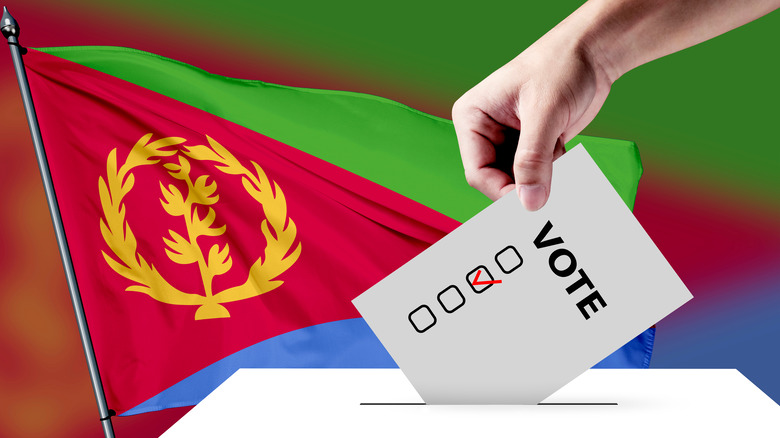The Most Censored Countries In The World
Even though most methods of censorship are strikingly similar, different countries and their political powers develop unique ways to silence citizens. The underlying principle behind the vast array of techniques is restricting people's access to information, whether these are the voices of the political opponents, academic knowledge, or simple facts. In many cases, content is intentionally manipulated or blocked, but most often closely monitored. Communication channels between citizens are limited in order to curb the spread of uncensored information.
Besides indicators of internet and mobile connectivity, research analyses of specific countries always consider the level of press freedom in the area: whether there is a presence of any autonomous media outlets, independent from political or financial associations. This is becoming more and more rare even in still-democratic countries of the 21st century, with the press slowly losing the position of the fourth branch of government — the watchdogs of the society — closing down media hubs while simultaneously losing the trust of the increasingly ignorant public. "Supervision by the press – as the public's wakeful conscience – is only effective when it does not tremble in the performance of this task for fear of being eliminated or banned, and this is only possible through 'being'," explains Ahmad Burghani in "Iran: The Need for Free Press."
Here is the list of the most censored countries in the world.
North Korea
Ranking as the second most censored country in the world, the North Korean government uses a variety of tactics to silence its citizens, from completely restricting press freedom to disabling any international online connections.
There is no independent media in North Korea, and almost all broadcasting and publications come from the Korean Central News Agency (KCNA), according to the Committee to Protect Journalists. Journalists are occasionally sentenced to death for "insulting the dignity of the country." International media staff are rarely allowed into the country, and if they are, they are frequently subjected to prosecution. In 2016, a BBC crew was detained while departing the country, held for hours and, at the end, expelled to Beijing: "Pyongyang has sent a clear signal that it remains deeply hostile to journalists," CPJ Asia Program Senior Research Associate Sumit Galhotra commented (via CPJ).
Only the political elite has online access, while the public is allowed to use Kwangmyong, a state managed internet structure. 4 million people own mobile phones and are connected to the state owned Koryolink mobile network; they are able to log online, but can only access content limited to North Korea.
China
China is famous for its obsession with keeping up a good appearance, closely controlling the public image of the country. The Chinese Communist Party (CCP) implemented many additional authoritarian measures in recent years, closely monitoring all public organizations as well as business entities. During the health crisis in Wuhan in 2020, medical staff were prosecuted for sharing information on the COVID-19 outbreak, while millions were subjected to tight surveillance. As per Freedom House, China is the world's biggest enemy of internet freedom for the sixth year in a row, broadening its control to extraordinary extremes.
Different methods are used to prevent Chinese people from using the internet freely. The "Great Firewall," a set of filters which blocks visits to sites which are not in accordance with guidelines of the government, prevents visitors from browsing anything to do with pornography, gambling, or politics. Facebook, Google, and Twitter are off limits. There's also the use of Weibo, a blogging platform with a system that is set to remove all "false information" from personal sites (via AP News).
The COVID-19 pandemic furthered the tight grip of Chinese censorship, explains LSE University professor William Callahan to Charlotte Middlehurst for Index of Censorship: "From what we've seen, Beijing is using the coronavirus crisis to build and enforce a more intense surveillance and control regime. This goes beyond censorship to produce and promote 'positive news' about China's efforts to fight the pandemic, alongside 'negative news' that criticizes how Italy, the USA and other countries deal with it."
Saudi Arabia
Censorship in South Arabia tightened after the Arab Spring in the 2010s, reports the Committee to Protect Journalists. Several laws were enforced with the intention of silencing the opponents of sharia law, using severe punishment for anyone who does not support the ideas of the Saudi Arabian leaders. Anti-terrorism laws, implemented in 2014, criminalize any disagreement with the official understanding of Islam. All internet content is closely monitored and blocked.
As Riyadh Najm, president of the Saudi General Commission for Audiovisual Media, told the newspaper Asharq al-Awsat (via Alarabiya News), special plans were made for YouTube channels, which need to follow official values: "The most prominent thing about these regulations is that they [will make sure that] YouTube channels are licensed in Saudi Arabia according to [acceptable] limits and morals and that all workers abide by broadcast regulations. This aims to guarantee the quality of performance."
As Justin Shilad explains for CPJ, the situation in the country got even worse after Mohammed bin Salman, Saudi prince, took over leadership in the country in 2017. Under the pretence of combating corruption and terrorism, the number of official institutional attacks on journalists grew substantially. Media workers disappear often, without leaving a trace. The authorities specially target female journalists who write about women's issues, such as the recently removed driving ban for women.
Myanmar
While Myanmar abolished the military junta system and transferred to democracy in 2011 (via CFR), the National League for Democracy (NLD) party, elected in 2015, returned the country back into the arms of military leadership. Per UNICEF, the Rohingya Crisis started in 2017: The state exiled thousands of Muslim Rohingya people and plunged the country into deep censorship on a local — as well as international — level. Several journalists reporting on the crisis were detained and prosecuted.
On top of that, less than half of the Myanmar population has internet connection, with the majority using mobile data plans to connect online. Private cable connections are rare, mostly due to inadequate infrastructure.
According to Freedom House, the censorship worsened in 2020, ahead of general elections. Mobile online access was blocked, along with all the local and independent news outlets in the country. Online content was censored on the basis of "fake news." While threats were made to block certain websites, only the Telenor Myanmar company resisted, but they broke under the pressure of the government later. 22 sites regarding COVID-19 were blocked as well after being labeled as "misleading."
Vietnam
There is only one political party in Vietnam, and that is the Communist Party of Vietnam (CPV); its total domination is even legislated in the constitution, according to Cyber Threat Intelligence. This centralized power overlooks telecommunications, media, and everything else. Their main goal is to block any information that is not in line with the official narrative of the party, even if it's only informative. Religious groups, such as Buddhists and Catholics, are banned, as well as political opponents and even human rights organizations. Democracy is a forbidden topic, as is any information about a different political system than one-party communism. For those who don't comply with rules, there is retribution in form of fines, prosecution, or prison. The party goes as far as banning political campaigns on social media and arresting anyone who tries to promote oneself as a possible electoral candidate.
Since 2013, censorship on the internet has toughened, citizens are no longer allowed to discuss or criticize politics or any public affair online. There are several ways the government sabotages the internet connection. The telecommunication companies are state owned – by the Vietnamese army — and while the majority of the population has online access, connections are closely monitored and subjected to restrictions. Facebook and Instagram are banned. Content is often manipulated, with 10,000 military men in Hanoi employed to sway public opinions.
Iran
Despite the fact that elections are held regularly in Iran, the country does not endorse actual democracy, according to Freedom House. The supreme leader of the country, Ayatollah Ali Khamenei, oversees several institutions, including the Guardian Council, an unelected committee which dictates who can or cannot run in elections. Censorship is strong in the country, with the government controlling telecommunications (as well as the media) and leading operations of spreading misinformation both locally and internationally.
Opposition is often paid with life; in 2020, journalist and founder of the Amad News Ruhollah Zam was hanged on the basis of "corruption on earth." As per RSF, Iran is one of the most repressive countries for media workers. More than 860 journalists were assaulted, prosecuted, and murdered since the 1979 Islamic revolution. The government even attacks Iranian journalists who live internationally, along with relatives and families of prosecuted journalists.
Iranian authorities often shut down internet communication in times of crisis – in 2019, the massive protests in the country led to another internet shutdown, which enabled the government not only to restrict communications and access to information, but also prevent international streaming of authoritarian violence targeted towards civilians, reports AP News.
Kazakhstan
Kazakhstan was led by the same person from its independence in 1991 until 2019, when Kassym-Jomart Tokayev succeeded former president Nursultan Nazarbayev, who resigned (via The Guardian). That said, no free elections were held in Kazakhstan, at least by international standards. The censorship has become worse since 2017, though, when the government decided to add new laws regarding communications in the country, reports Open Democracy. With new regulations, the national intelligence agency has total authority over the already-centralized telecommunications network, including internet access.
The National Security Law enables the National Security Committee to shut down internet access and mobile connection in times of crisis — such as mass protests or anti-terrorist operations targeted at anyone who disagrees with the government, including the Democratic Choice of Kazakhstan. No court order is needed for such blockage, only a request by the General Prosecutor. The same law demands for every citizen to verify themself by SMS verification or digital signature if they want to leave a comment online, with a fine of $750 for anyone who fails to comply. This led many independent media outlets to completely remove the comment section from their sites.
During recent anti-government protests in January 2022, mobile signal along with internet access was shut down again for days, preventing citizens from gathering any information on current situations or communicating among themselves. Several journalists who covered the protests were beaten by the police and taken to custody (via Analytical Center for Central Asia ACCA).
Turkmenistan
As per Reporters Without Borders (RSF), Turkmenistan was the least free country in 2019, according to their World Press Freedom index. All the media in the country is in the hands of the government, led by President Gurbanguly Berdymukhamedov, known as "Father Protector." Journalists are often jailed, prosecuted, and even murdered. Turkmenistan is also known as the "enem[y] of the internet," with a very scarce internet connection, which is only available to those who show their IDs. Even when Turkmens manage to get online, they are presented with a censored version of the internet, with many sites and information blocked.
In 2020, the country decided to censor all information regarding COVID-19, claiming there were zero cases in the country. Anyone can be arrested for wearing a mask or even talking about the pandemic in public. "This denial of information not only endangers the Turkmen citizens most at risk but also reinforces the authoritarianism imposed by President Gurbanguly Berdymukhammedov," disclosed Jeanne Cavelier, the editor of RSF's Eastern Europe and Central Asia office.
But censorship does not stop here. As reported by Open Democracy, Turkmenistan closely monitors students who study abroad. Collaborating with students themselves, the government deploys student spies, in exchange for financial help, who monitor fellow students. If they don't act according to the guidelines, they can be thrown in jail after returning to Turkmenistan. But it's not only the students – all citizens are under tight surveillance and pressured into spying on their friends and family.
Russia
While the Russian population has decent access to the internet, with more than 65% of people connecting online on a daily basis, the biggest problem in the country is monitoring and restricting the content which doesn't fit the official narrative. Research done by Freedom House shows that the government of President Vladimir Putin is doing everything to silence any opponents of the regime, including sharing information about the situation in the country. In January 2021, when Russian people protested against detention of opposition leader Aleksey Navalny, the government censored the coverage of the protests as well as all the information regarding Navalny's trial. Many of Navalny's supporters ended up in jail, charged with extremism. Information on COVID-19 was blocked as well, similar to any critical opinion on how well the government is dealing with the crisis.
But the biggest opponent to internet freedom is the "Sovereign Internet Law," a series of amendments on existing laws on communications and information. Ratified in November 2019 and implementing more restrictions in January 2021, the new legislation was added with the intention to secure the state from international attacks. But, as reported by German Council on Foreign Relations, this legislation enables centralized governance of communication networks and, in the case of a possible attack, the isolation of the state internet from the rest of the world. The current infrastructure makes it impossible for the government to actually do that, but with future investments and construction projects, this will be the final goal.
Belarus
Among all European countries, there is the highest chance of being attacked in Belarus if you work in the media, according to RSF. The freedom of press, expression, and access to communication is frequently disrupted with physical violence, threats, police raids, and arrests. The government often cuts internet connection, blocks websites, and censors the still-existing press. Many journalists are jailed or forced into exile, and the length of prison sentences for them is getting longer and longer. Such was the case of Natalya Radina, the editor in chief of Charter 97 website, who had to flee the country in 2011, after receiving threats and being under constant surveillance from the KGB, Belarus' security agency (via CJP)
The situation got worse in 2018, reports CJP, after the implementation of new laws officially targeting "fake news." This led to censorship of news websites and social media networks, with a legal request to ban internet anonymity, moderate published content, and even block sites.
The censorship reached unprecedented levels after August 2020, when the presidential elections took place in Belarus, describes Amnesty International. After the equivocal win of the president Alyaksandr Lukashenka, massive — but peaceful — protests erupted all over the country, which led to the biggest repression of democratic rights in the history of independent Belarus. The government tried hard to shut down communications with the international community, and it did everything to quiet the journalists as well as protestors, even jailing citizens and threatening women with rape and separation from their children.
Cuba
As legal associate Viviana Aldous reports in International Program Papers, the Cuban government heavily restricts its citizens and their rights to freedom of expression, free gatherings, and access to information. Censorship extends to "books, newspapers, radio stations, music, movies, television, and internet": everything that is not in accordance with the Cuban one-party communist regime.
Internet connection is rare and expensive, positioning Cuba as one of the least connected countries in the world. As per Freedom House, although the technical infrastructure was vastly upgraded in recent years, internet connection is still out of reach for the majority of the population. Public internet access points do exist in the country, but access to foreign sites is more expensive than the local ones. Mobile internet is so high-priced that it is out of reach for citizens with an average monthly salary. The Inclusive Internet Index revealed that only 18% of households had online access in 2020. Even then, all online activity is monitored, often redirected to the internal, government-led intranet.
Many foreign human rights organizations are not allowed to enter Cuba, reveals Amnesty International. Communications with the local human rights activists and journalists are often blocked by restricting their online social media accounts, but also by disabling their mobile numbers.
Eritrea
Eritrea ranks the vary last on the World Press Freedom Index List conducted by Reporters Without Borders (RSF), taking 180th place out of 180 measured countries. The attack on press freedom got worse in 2001 when President Isayas Afeworki decided to shut down all the independent media in the country. As local sources told the Committee to Protect Journalists (CJP), the intention was – and still is – the suppression of opposing voices who don't agree with the leading political party. The People's Front for Democracy and Justice has firmly held that position since 1993, a time when Eritrea established a state and gained independence from Ethiopia.
Several independent newspapers were closed down overnight, leaving only one paper, the state-owned Haddas Erta. The official reason for closures was a failure to adhere to licensing demands, although the real reason was disagreement over publishing material which was critical towards the government. Radio journalist Solomon Abera, who was present at the time of the crackdown, describes how the situation got dangerous overnight when he was called by the minister of information Naizghi Kiflu's office to receive a statement which notified the public on the newspapers' closures: "There was nothing to be done. As far as the government was concerned, we were no better than those imprisoned, and it sent a clear message to all of us: 'You too will get it–if you say anything!'" (via CJP).
As per RSF, several journalists, at least 11, are still in prison since 2001, without trials or access to legal help.
